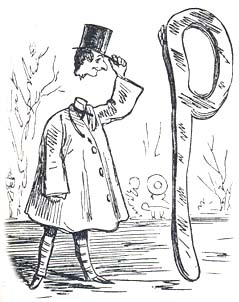Preface
In June 1950, as the Cold War grew more intense in Europe and North Korea invaded South Korea, more than a hundred European and American writers and intellectuals met in Berlin and established the Congress for Cultural Freedom to resist the Kremlin's sustained assault on liberal democratic values. In the 1950s the Congress spread throughout the world, successfully creating magazines, organizing protests, establishing a network of affiliated national committees and fostering international contacts. The Congress continued into the 1960s, broadening its focus to lay the basis of an international community of liberal and democratic intellectuals. It was America's principal attempt to win over the world's intellectuals to the liberal democratic cause.
Then, in an era of the Vietnam War, a New Left, a new Conservatism and an emerging detente, the Congress began to falter in its purpose. It was finally dissolved in 1967 amid disclosures of its funding by the CIA. Its successor organisation, the International Association for Cultural Freedom, never recaptured the élan or equaled the achievements of the earlier Congress.
My own interest in this story began in 1967 at the time of worldwide publicity about the disclosures. I was a member of the Australian outpost of the Congress for Cultural Freedom - the Australian Association for Cultural Freedom - and had just been appointed editor of the Australian magazine associated with the Congress, Quadrant. The Congress, now under attack, had for some years commanded my loyalty and through its magazines had helped to form my view of the world. When interviewed by reporters about the disclosures, I said firmly and frankly (as did most, but not all, people in a position similar to mine around the world) that none of our editorial decisions had ever been influenced by outside pressures, least of all by any American agency such as the CIA. I added - with what I would now, in the light of a greater awareness of the issues, regard as unfeeling sanctimony - that anyone involved in or knowing of CIA funding should resign from the Congress or be dismissed.
But a doubt lingered. Did, for example, the idea for the Congress's massive cultural festival in Paris in 1952 emerge from the deliberations among Congress intellectuals or rather from the concern of the US administration at the time that American was losing the "Battle of the Festivals"? Were all of the Congress's various initiatives in Latin America and Africa in the 1960s spontaneous Congress ideas, or were some of them produced by the activist mentality of the Kennedy administration? Were the Congress's forlorn attempts to reach Soviet writers entirely an expression of solidarity or did the CIA also have an interest?
I decided to inquire into the details of the programs of the Congress for Cultural Freedom - its magazines and national committees, its conferences and festivals, its protests and campaigns - to see if I could settle the doubts one way or another.
I wish, after ten years of research, that I had the final and complete story on the CIA's role. Some of its former officers - William Colby, Lyman B Kirkpatrick Jr, Thomas Wardell Brady - have written briefly about the CIA's funding of the Congress. Others, such as Cord Meyer Jr., have written in some detail of the CIA's arrangements with the (US) National Students' Association. But when I applied to the CIA under the Freedom of Information Act for records covering the years 1950 to 1967, all I received was a clipping from the New York Times published after the dissolution of the Congress and the statement: "No other records responsive to your request were located."
Given this absence of cooperation, I have no significant news from official sources about the extent of the CIA's involvement. But I do claim that I have found out more than anyone I have interviewed about the Congress's various activities around the world, about the plans and intentions of the people associated with it, and about their knowledge of any secret funding. I have also, in the course of seeking answers to my questions, come to the conviction that the cloak-and-dagger-questions of who paid whom, how, and for what are in fact far less important than the astonishing story into which I was more fully drawn than I had originally been, of the idealistic, courageous, and far-sighted men and women of the Congress for Cultural Freedom who fought in this war of ideas - with its attendant suffering and atrocities - against Stalinism and its successors. It was, as we now know, a necessary war, fought when much of the world was quite unaware of the fact that it was taking place.
The account herein summarises my inquiry, discusses the Congress's successes and failures, and, perhaps, offers some useful suggestions for viewing our recent history.
Peter Coleman, 1989.
The Free Press, New York and Collier Macmillan, London. Hardback, 330pp .
Contents
1. Out of No Man's Land
2. The 1950 Offensive
3. Good-bye to Berlin
4. Encounter: "Our Greatest Asset"
5. Magazines. Against the Tide
6. Plato's Banquet
7. The Impossible Dialogue
8. The Crusade for the World
9. The "Obnoxious" Americans
10. Changing Direction: "The New Enlightenment"
11. Magazines of the Sixties
12. Liberal Hopes and Illusions in the "Underdeveloped World"
13. Reaching Behind the Iron Curtain
14. A Black Operation?
15. The Aftermath: "No Consensus Emerged"
16. The Congress in Retrospect


